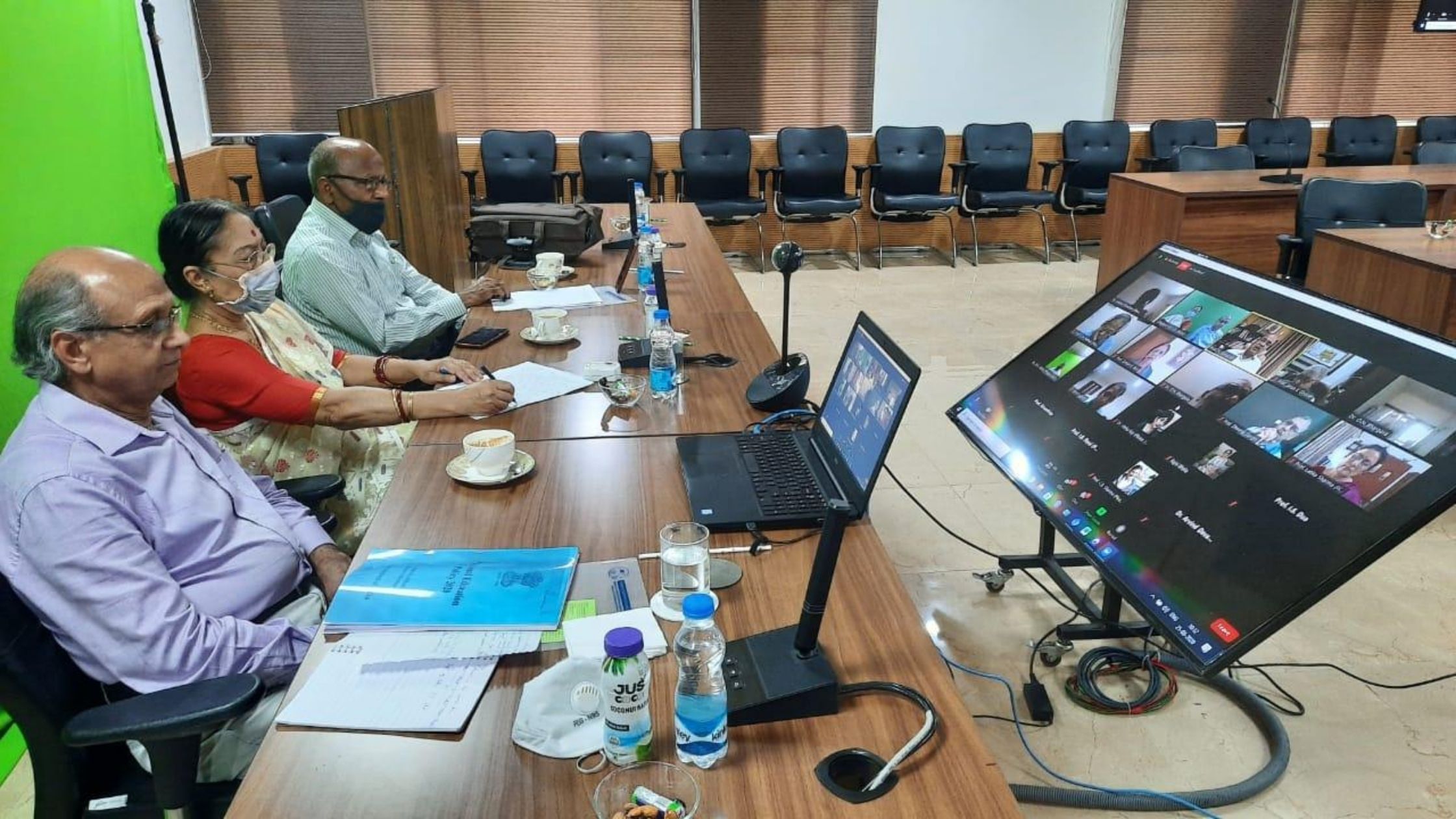Chandigarh August 25, 2020
Society for Promotion of Science and Technology in India, Department of Education, Panjab University, Chandigarh and National Academy of Sciences India (Chandigarh Chapter) joined together to hold a web-based panel discussion on the New Education Policy-2020. The last policy was introduced in the year 1986, followed by a few amendments in the year 1992. The new policy has come after a gap of 34 years.
Today’s session on School Education saw the participation of a number of experts directly associated with drawing up the policy document. All the dignitary, faculty members from Universities/Colleges and Schools along with Research Scholars and School Students were welcomed by Prof. Kirandeep Singh, Chairperson Department of Education. This session on School Education was coordinated by Prof. Latika Sharma of Department of Education, Panjab University and was chaired by Shri Dharam Vir, IAS (Retd.), President SPSTI. Prof. Dheeraj Sanghi, Director, Panjab Engineering College, Prof. Arun Grover, former Vice Chancellor of Panjab University, Prof. Keya Dharamvir, General Secretary, SPSTI, Prof. I. B. S. Passi, Chairman, Advisory Committee, NASI Chandigarh Chapter and Prof. Kirandeep, Chairperson, Dept. of Education, PU joined the panel as members of the organizing committee. The panel discussion was broadcast live on Zoom and Facebook.
The first panelist to express his views was Prof. H. Senapaty, Director NCERT, who spoke on pedagogical reforms. He said that the new educational policy envisages to develop the unique capacity of each student, whereas presently the focus is to help students score marks in examinations. “One size fits all” is no longer applicable in education. Parents, teachers, counsellors and social workers need to be involved to bring about the above changes for enabling the students.
Next on the panel was Prof. C.B. Sharma, Prof. Education, IGNOU, who has worked for many years towards the formulation of the policy, spoke about how all sections of the society were consulted and how very many different aspects were considered in drawing up NEP. Most importantly this policy, unlike previous policies, was also an expression of will to change and provides a road map for the future.
Dr. Leena Chandran who again was associated with formulation of this policy and works for Observer Research Foundation, spoke about Early Childhood Care and Education. She apprised the audience about the importance of providing development opportunities to age group 3-8 years. She emphasized that multilingualism is not only feasible but also desirable and especially at an early age, it helps in brain development.
Prof. K. Pathak, former Vice-Chancellor, PU summarized the paragraphs in the policy document to highlight important aspects of school education. Prof. K. Ramachandran, Senior Advisor, N.I.E.P.A., who was also a member of the Kasturirangan Committee, who was invited next to present his views, talked about the practical aspects of implementation of the concept of school clusters. Dr. Vibha Ray, Principal, D.A.V. Sr. Sec. School (Lahore), Sec-8C, Chandigarh also focused on practical aspects of dealing with implementation of NEP. She apprised about teacher’s training NISHTHA which was taking place under the scheme.
An audience of more than 1300 connected via Facebook and Zoom. It was followed by a lively session of questions which were answered willingly and enthusiastically by the learned panelists.
A session on higher education will take place on August 28, 2020. These events are supported by the Department of Science and Technology, Chandigarh Administration.

 हिंदी
हिंदी






